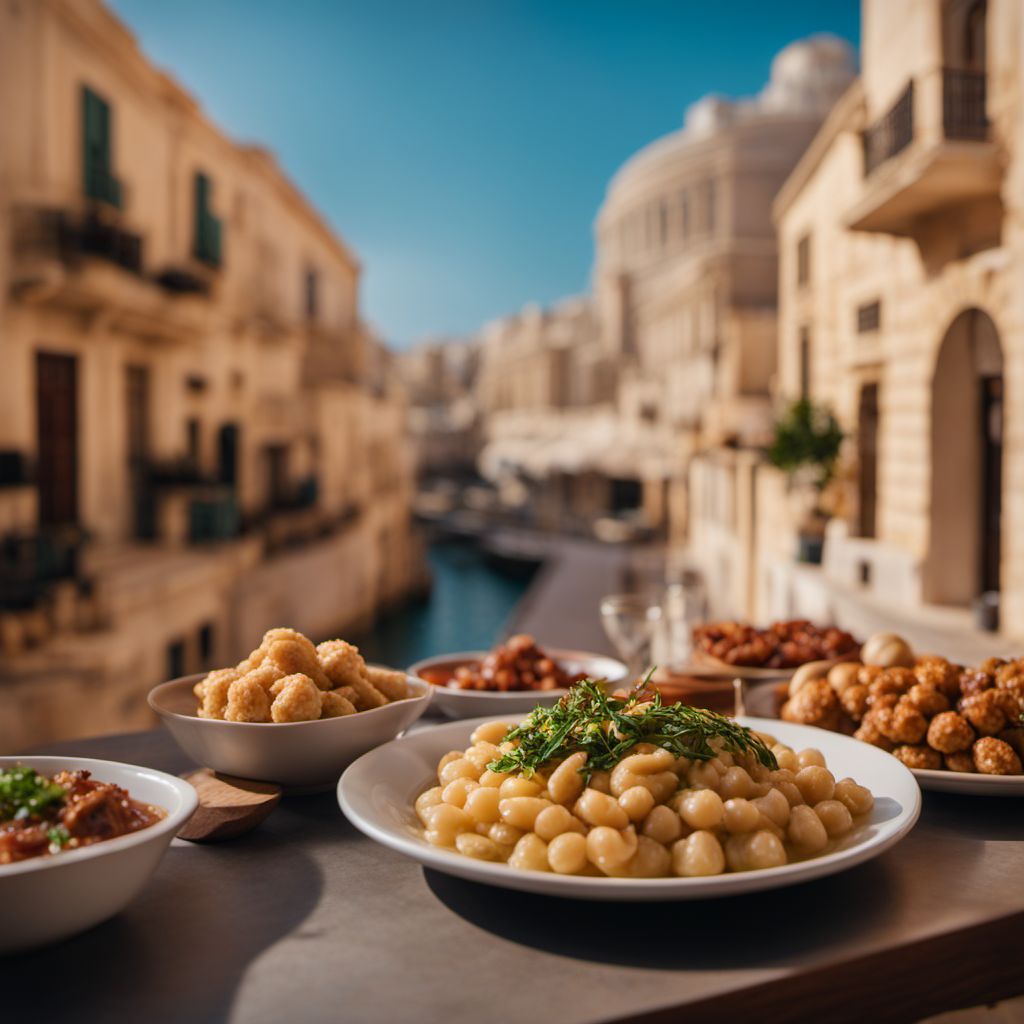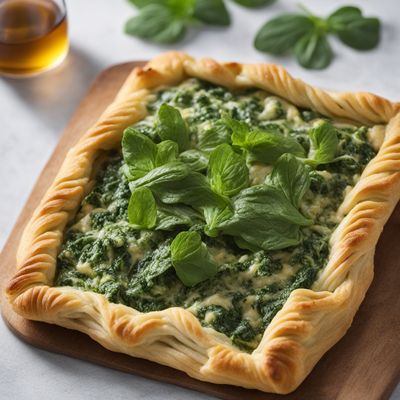
Cuisine
Maltese cuisine
Maltese cuisine is a regional cuisine from Malta, an island nation in the Mediterranean. It is known for its use of fresh and local ingredients. Maltese cuisine is heavily influenced by the Mediterranean diet, which emphasizes the use of olive oil, vegetables, fruits, and fish. Maltese cuisine is also known for its use of rabbit, which is a popular meat in Malta.
Typical ingredients
Fish, Rabbit, Vegetables, Fruits, Olive oil, Garlic, Tomatoes, Capers, Olives
Presentation and garnishing
Maltese cuisine is often presented in a rustic and simple manner, with dishes served family-style. Garnishes are often minimal, with a focus on the natural flavors of the ingredients.
Maltese cuisine is also known for its use of traditional sweets, such as Imqaret and Qaghaq tal-Ghasel. These sweets are often served during festivals and special occasions.
More cuisines from this region...
Spanish cuisine, Italian cuisine, Turkish cuisine, Portuguese cuisine, Balkan cuisine, Cypriot cuisine, Sammarinese cuisine, Gibraltarian cuisine
History
Maltese cuisine has a long history dating back to the Phoenician civilization. The cuisine has been influenced by various cultures, including the Greeks, Romans, Arabs, and British. During the Middle Ages, Maltese cuisine became popular among the wealthy and was known for its use of spices and exotic ingredients. Today, Maltese cuisine is known for its use of fresh and local ingredients.
Cultural significance
Maltese cuisine is an important part of Mediterranean cuisine and is known for its use of fresh and local ingredients. It is also known for its wine, including Gellewza and Ghirgentina. Maltese cuisine has influenced many other cuisines around the world.
Health benefits and considerations
Maltese cuisine is known for its health benefits, as it emphasizes the use of fresh and high-quality ingredients. The Mediterranean diet, which Maltese cuisine is based on, has been linked to a reduced risk of heart disease, stroke, and other chronic diseases. However, some Maltese dishes can be high in fat and calories, so portion control is important.
Maltese cuisine dishes Browse all »

Spagetti biz-zalza tal-qarnit
Spaghetti with squid sauce
Spaghetti biz-zalza tal-qarnit is a traditional Maltese dish that is perfect for a quick and easy meal. The dish is made with spaghetti pasta and a rich tomato sauce that is...

Balbuljata
Egg and vegetable dish
Balbuljata is a Maltese dish made from baked potatoes and eggs. It is a hearty and filling dish that is perfect for breakfast or brunch.

Pulpetti tal-makku
Octopus Stew
Pulpetti tal-makku is a traditional Maltese dish that is perfect for meat lovers. This flavorful dish is made with ground beef that is seasoned with garlic, parsley, and breadcrumbs.

Imqaret
Imqaret is a traditional Maltese sweet pastry filled with dates. It is a popular snack in Malta and can be found in most bakeries and cafes.

Pixxispad mixwi
Grilled Swordfish
Pixxispad mixwi is a traditional dish from the island of Madagascar. It is a hearty stew made with a variety of vegetables and spices, and is typically served with rice or bread.

Żebbuġ mimli
Stuffed olives
Żebbuġ mimli is a traditional Maltese dish that is perfect for any occasion. This dish is made with olives, garlic, and herbs, which are stuffed into cherry tomatoes and then...

Ottijiet
Ottijiet is a traditional Maltese dish made with rabbit and spaghetti.

Klamari mimlija
Stuffed Squid
Klamari mimlija is a traditional Maltese dish that is made with stuffed squid. It is a flavorful and hearty dish that is perfect for a special occasion.
Maltese cuisine recipes Browse all »

Torta tal-Irkotta - Maltese Ricotta Pie
Mediterranean Delight: Flaky Maltese Ricotta Pie

Maltese Rabbit Stew
Savory Delight: Maltese Rabbit Stew with Mediterranean Flavors

Maltese Lentil Soup
Hearty Lentil Delight: A Taste of Maltese Comfort

Maltese-Style Som Tam Khai Khem
Zesty Maltese Papaya Salad with Salted Eggs

Maltese-style Fish Balls
Mediterranean Delight: Maltese-style Fish Balls

Maltese Octopus Stew
Mediterranean Delight: Maltese Octopus Stew

Maltese-style Gnocchi with Cheese Sauce
Melt-in-Your-Mouth Maltese Gnocchi: A Cheesy Delight

Stuffed Eggplant Delight
Mediterranean Eggplant Surprise

Prinjolata - Maltese Almond and Chocolate Cake
Decadent Delight: Maltese Almond and Chocolate Prinjolata

Maltese Tuna Pie
Mediterranean Delight: Maltese Tuna Pie

Kwareżimal - Traditional Maltese Lenten Almond Biscuits
Heavenly Almond Delights: Kwareżimal Biscuits

Maltese Spinach and Cheese Pastizz
Savory Delight: Maltese Spinach and Cheese Pastizz